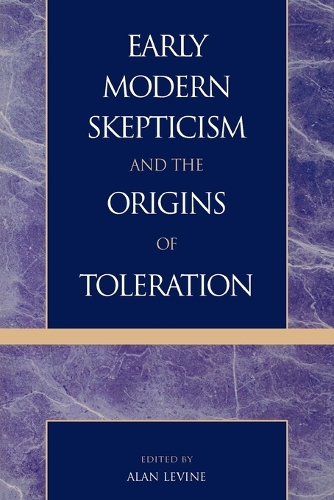
Early Modern Skepticism and the Origins of Toleration
(Paperback)
Publishing Details
Early Modern Skepticism and the Origins of Toleration
By (Author) Alan Levine
Contributions by Michael Gillespie
Contributions by Maryanne Cline Horowitz
Contributions by Alan Craig Houston
Contributions by Shirley Letwin
Contributions by Joshua Mitchell
Contributions by Patrick Riley
Contributions by Diana J. Schaub
Contributions by Steven B. Smith
Contributions by Nathan Tarcov
Bloomsbury Publishing PLC
Lexington Books
15th April 1999
United States
Classifications
General
Non Fiction
European history
Philosophy of religion
322.44209
Physical Properties
Paperback
290
Width 152mm, Height 228mm, Spine 22mm
435g
Description
This collection of original essays by the nation's leading political theorists examines the origins of modernity and considers the question of tolerance as a product of early modern religious skepticism. Rather than approaching the problem through a purely historical lens, the authors actively demonstrate the significance of these issues to contemporary debates in political philosophy and public policy. The contributors to Early Modern Skepticism raise and address questions of the utmost significance: Is religious faith necessary for ethical behavior Is skepticism a fruitful ground from which to argue for toleration This book will be of interest to historians, philosophers, religious scholars, and political theoristsanyone concerned about the tensions between private beliefs and public behavior.
Reviews
Levine and his contributors must be congratulated for producing a uniformly learned and elegant set of inquiries into the foundations of early modern toleration. * American Political Science Review *
Many excellent American writers have made Montaigne a precursor of modern liberalism. They include . . . Alan Levine (Early Modern Skepticism and the Origins of Toleration). * Times Literary Supplement *
Author Bio
Alan Levine is Assistant Professor of Government at American University.
